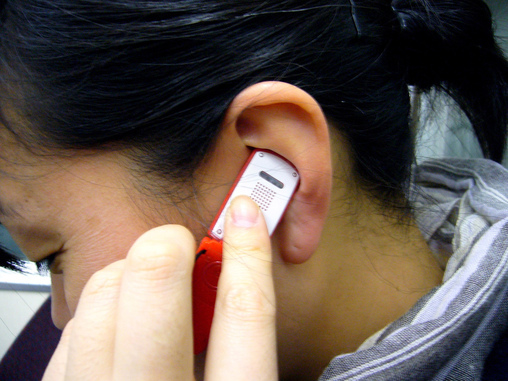The Big C Question Clarified Over Cellphone Risk
It has beena little more than a decade since I first saw people glued to a black device (or what was the beginning of SMS in mobile phones. The paging network was the “in” thing before that. The pagers made those who have it appear quite important. People would send them a note through and operator that you have to call.
With the advent of mobile phones the status symbol was shattered. Although in the beginning having a cellphone came at a steep price (for what appears to be very limited capabilities and features in today's standards), the prices later hit bottom with almost everyone doing well to have more chance to connect without having to route their important messages to somebody out there (as the operator).
For some time, technology everyone with its improved capabilities. For severeal yeas, some people became scandalized via cellphones. Owing to the democraticization of cellphone prices and subscription services, almost everyone can get informed almost instantaneously. People trooped to the streets protesting which turned out to be the second EDSA. This was how powerful cellphones came to be.
It is undeniable that every Filipino seems to have a penchant to have a device in tow all day long (and even all night long). To text or not text, or better yet call and get glued all day and night on the phone. Afterall, what is unlimited service if it doesn't hold its promise.
The question that has been bugging everyone is if there is any risk for cellular phone users of developing cancer. A study involving 2.8 million Danish adults perhaps hold the answer.
According to the study, people who used the cell phone for 10 to 11 years do not have higher risk in developing acoustic neuroma than those who do not use cell phones at all. Acoustic neuroma, also known as Vestibular Schwanoma, is a slow growing tumor that affect the nerve that runs from the brain to the ear.
People who develop acoustic neuroma experience ringing of ears, balance problems and dizziness. In some cases this form of cancer becomes life-threatening if it grows large and impinge the brain.
Since regular and frequent cellphone users place their phones in their ears and therefore absorbing more energy transmitted by the device, the researchers hypothesized that the this part of the body will have the tendency to develop cancer, if at all.
Dr. Joachim Schuz, a member of World Health Organization's International Agency for Research on Cancer (IARC) and lead researcher of the study published last June 2011 in the American Journal of Epidemiology, concluded that they no found no association between use of this device and cancer growth.
He was also quick to point out that since this form of cancer is slow-growing, the study conducted only begun in the 1990s. Beyond the period they covered, the actual outcome among users have yet to be determined.
Notwithstanding these findings it is still prudent to keep calls and texts limited. The direct effects on the ear and thumb are troubling enough to avoid even the possibility of developing cancer in the long run.

 RSS Feed
RSS Feed

